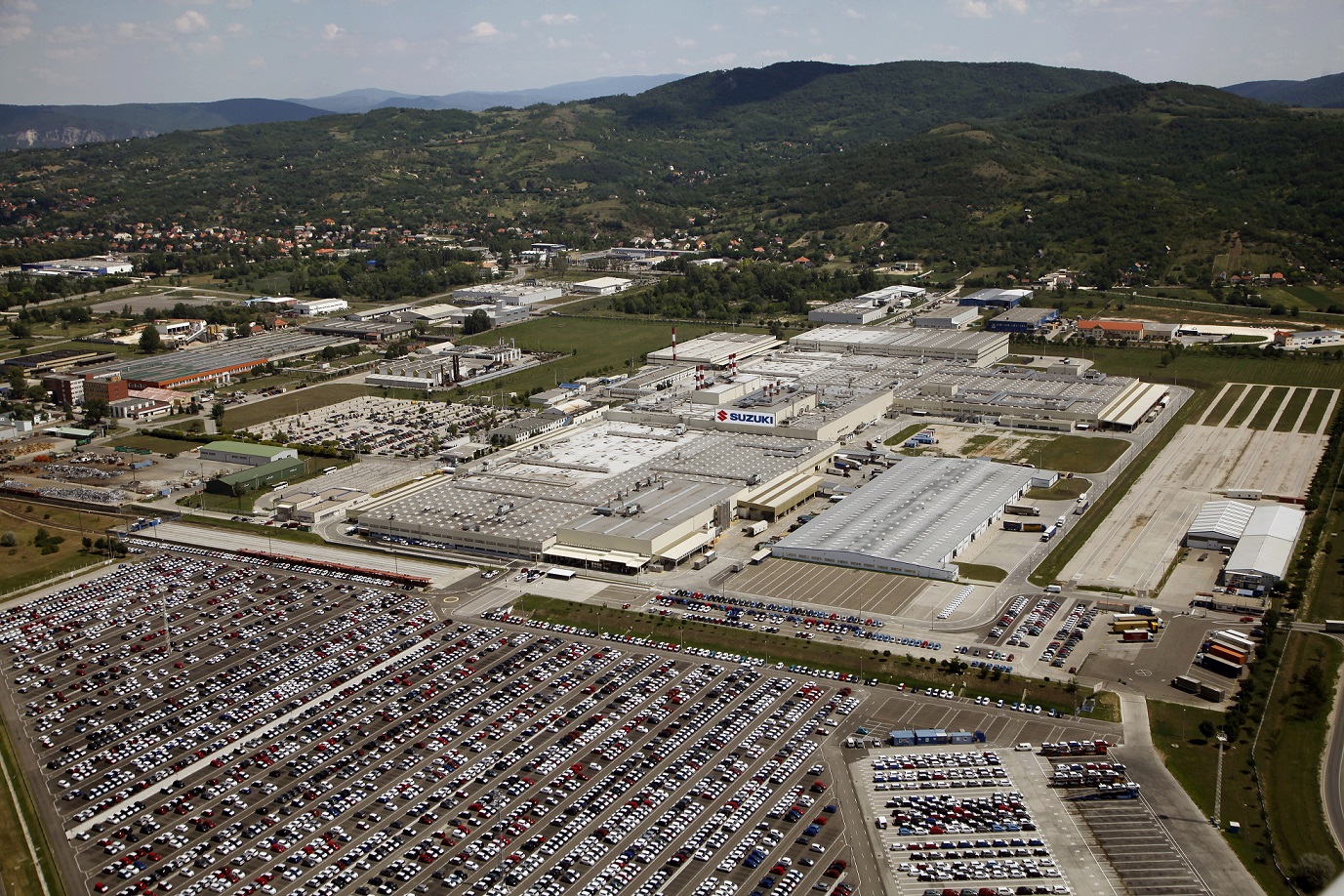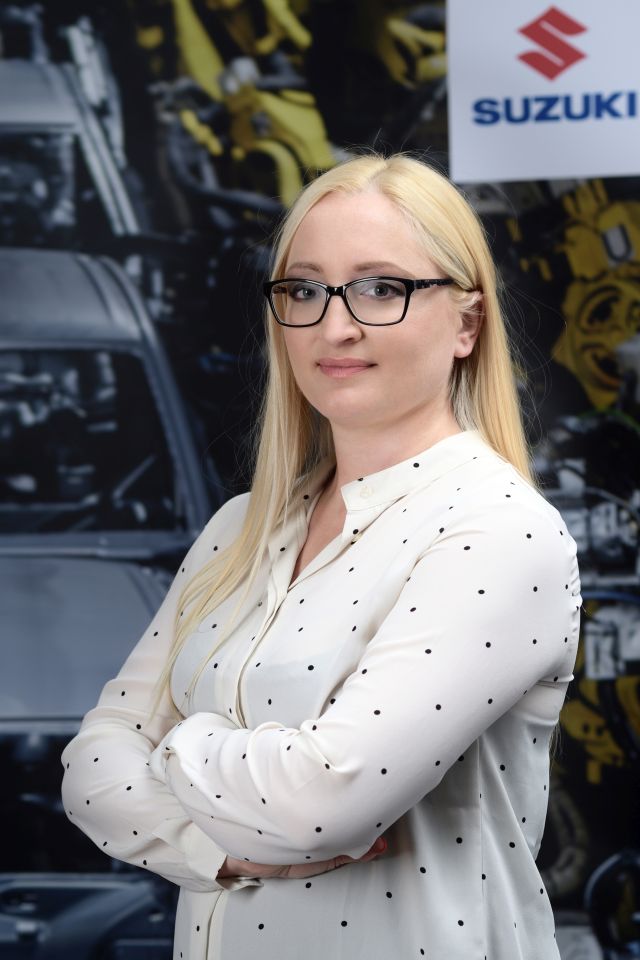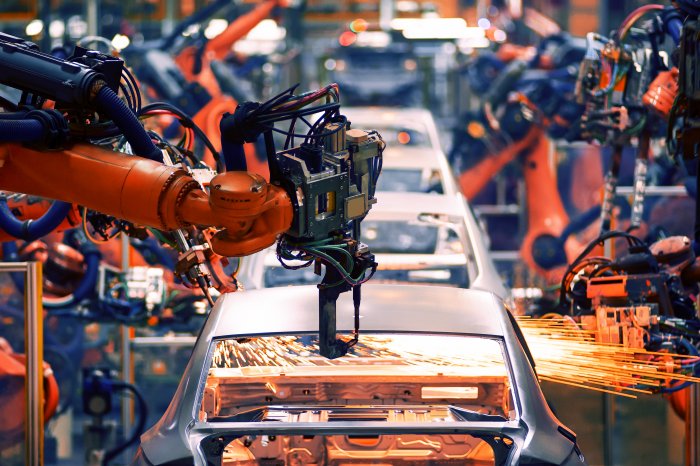Audi, Suzuki Motor on Despite Chip Shortage

The global semiconductor supply shortage has not affected production at two of Hungary’s most established OEMs, Magyar Suzuki and Audi Hungaria, which tell the Budapest Business Journal they continue to operate, albeit under strict protective measures.
It hardly needs an explanation as to why the pandemic has so severely hit the auto industry. Motor vehicle production in 2020 dropped to 78 million vehicles from 92 million in 2019, or by around 16%, according to data from the International Organization of the Motor Vehicle Manufacturers and international news wire Reuters.
In the European Union, 10.8 million cars were produced, compared to 14.1 million in the year before the pandemic struck, a drop of 23%. The Swedish, Belgian, and Romanian car industries proved to be the most epidemic-resistant, with lower production capacity and a minimal decrease in volume.
With a 17.5% drop, Hungary was in the midrange, alongside Slovakia (-12%), Italy (-13.2%), and the Czech Republic (-19.3%). According to data by credit insurance company Euler Hermes, Germany, the market Hungary is most closely tied to, saw a 24% decrease.
Production at Magyar Suzuki Zrt. decreased by approximately 30% in 2020 due to a complete closure at the beginning of the first wave and the restrictive measures introduced in Hungary and abroad that followed, the company says.
Once it could be safely managed, the factory at Esztergom (50 km northwest of Budapest by road) reopened. “The manufacturing and work processes have not changed in the past year because of the coronavirus epidemic,” Zsuzsanna Bonnár-Csonka, head of communication at Magyar Suzuki, tells the BBJ.
“Only the strict and complex health regulations and rules introduced to control the epidemic caused some changes,” she explains. Beyond mandatory mask-wearing, hand disinfection, and social distancing, workers may enter the factory area only via a painted, designated route.
In production areas, where keeping a safe distance is more difficult to ensure, the old workstations were dismantled, shield separators were installed, and face shields were also introduced.

Zsuzsanna Bonnár-Csonka
Limited Access
The company increased the number of busses it runs to prevent overcrowding. Suzuki banned business trips and barred partners and visitors from visiting the factory for a period. At present, foreign travel is only possible with special management approval and only in the most justified cases.
Suzuki says it has continued developments related to cost reductions and the optimization of operations. Partners can now visit the factory by prior agreement, but foreigners can only enter with two recent negative PCR tests. This May, the company set up a vaccination point on the premises for employees. The jabs are voluntary and are ensured by a private healthcare provider.
Audi Hungaria Zrt. also recently starting the vaccination of its employees on its premises. Alongside the more than 120 preemptive measures it has introduced, that has helped the German manufacturer navigate the three waves of the pandemic in Hungary, the company says.
“We have learned a lot during the pandemic. Thanks to our joint and coordinated effort, we have become stronger; the high production volume from last year also proves that,” Audi Hungaria tells the BBJ.
In 2020, more than 1.6 million powertrains and more than 155,000 cars left the factory complex in Győr, 120 km west of Budapest. That ensured Audi Hungaria a turnover of EUR 7.518 billion.
Both Magyar Suzuki and Audi Hungaria admitted the dwindling global supply of semiconductors requires monitoring, though for now, neither has faced particular problems.
“At present, both powertrain and vehicle production goes according to plan,” the Audi press department confirms. “We are constantly analyzing the situation, keeping close contact with our suppliers, logistics partners, and other manufacturing sites of the group. We expect the next months to remain turbulent in terms of semiconductor supply.”
Significant Challenge
Bonnár-Csonka, of Suzuki, says: “The global chip and semiconductor shortage is a significant challenge for automotive electronics suppliers and car manufacturing companies, including Magyar Suzuki. We are constantly consulting with our suppliers on this issue; as a result, we have not experienced any disruption at our company so far.”
For both OMEs, futureproofing and digitalization have remained on the books. “We will continue to strive to digitize our production as much as possible,” Bonnár-Csonka says.
“Our GINOP consortium project [part of the EU-funded Economic Development and Innovation Operative Program], which started in 2016, also includes several Industry 4.0 development elements.” In addition, specialists are constantly working on exploring new opportunities to increase competitiveness. The clear expectation is that it will place the Japanese carmaker on a solid footing.
“We are currently monitoring and analyzing the market situation in which, despite the advent of the vaccines, we still must deal with several uncertainties,” Bonnár-Csonka points out. “The market environment is changing extremely fast, and we need to adapt flexibly. However, if the virus situation no longer has a significant impact on the automotive market, we believe that we can approach the level of 2019 this year or reach it in 2022,” she says.
Audi Hungaria’s press department says the parent company maintained its future-oriented stance through the last fiscal year with EUR 171 million in investments, taking the cumulative total to EUR 11.7 bln since establishment.
“With our latest investment we further improve our competitiveness as, besides producing powertrains and cars, we also offer world-class services for the whole VW Group. One of the flagships of these is our tool factory that we are expanding by 6,300 sqm meters, creating 30% more capacity for exclusive series production where we manufacture all kinds of body components for 40,000 sports models of the Volkswagen Group annually, including Audi RS models, Audi R8, the new Audi e-tron GT, Lamborghini, and Bentley models,” the company says.
It also provided a one-off payment of HUF 350,000 gross to staff to thank them for their work during the pandemic under challenging circumstances.
This article was first published in the Budapest Business Journal print issue of May 21, 2021.
SUPPORT THE BUDAPEST BUSINESS JOURNAL
Producing journalism that is worthy of the name is a costly business. For 27 years, the publishers, editors and reporters of the Budapest Business Journal have striven to bring you business news that works, information that you can trust, that is factual, accurate and presented without fear or favor.
Newspaper organizations across the globe have struggled to find a business model that allows them to continue to excel, without compromising their ability to perform. Most recently, some have experimented with the idea of involving their most important stakeholders, their readers.
We would like to offer that same opportunity to our readers. We would like to invite you to help us deliver the quality business journalism you require. Hit our Support the BBJ button and you can choose the how much and how often you send us your contributions.









